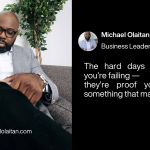Solar energy is one of the smartest investments for homes and businesses in Nigeria. It saves money, reduces dependence on fuel, and provides reliable power. But like every technology, solar panels are not perfect. Over time, they can develop issues that affect performance.
The good news? Most solar panel problems are common, easy to understand, and often preventable. In this article, we’ll look at the most frequent issues people face with solar panels in Nigeria—and how to fix them.
1. Dust and Dirt Build-Up
Nigeria’s climate is dusty, and panels installed outdoors are constantly exposed to dirt, sand, and pollution. This layer of grime blocks sunlight and reduces energy output.
Clean panels regularly with water and a soft cloth (avoid harsh chemicals).
Schedule professional cleaning at least twice a year.
Install panels at a slight tilt so rainwater can help wash off dirt naturally.
2. Shading from Trees or Buildings
Even a little shade from a tree branch, nearby wall, or roof extension can reduce the power from your entire solar array.
The Fix: Trim back trees regularly.
Make sure panels are installed where there’s maximum sun exposure.
Consider using “microinverters” or “power optimizers” that reduce shading impact.
3. Loose or Faulty Wiring
Poor installation or wear-and-tear can lead to loose wires and weak connections, which may cause power loss or even system failure.
The Fix: Always hire certified solar installers.
Carry out periodic inspections to ensure connections remain tight.
If you notice flickering lights or power drops, call a technician immediately.
4. Overheating
Nigeria’s hot weather can sometimes cause solar panels to overheat, which reduces their efficiency.
The Fix: Leave enough space between the panels and the roof for airflow.
Use high-quality panels designed to handle tropical climates.
Keep panels clean so they don’t absorb excess heat.
5. Cracks and Physical Damage
Heavy storms, falling debris, or even poor handling during installation can crack the glass surface of a panel. Once cracked, performance drops sharply.
The Fix: Inspect panels after heavy rains and storms.
Replace damaged panels quickly to avoid bigger system issues.
Use durable mounting systems that keep panels firmly in place.
6. Inverter or Battery Issues
Sometimes the problem isn’t the solar panel itself but the inverter or battery connected to it. If they fail, energy from the panels can’t be stored or used.
The Fix: Check error codes on the inverter regularly.
Replace faulty batteries as soon as you notice reduced backup time.
Schedule regular system checkups to catch problems early.
FAQs
Q: How often should I clean my solar panels in Nigeria?
A: At least once every 2–3 months, depending on your environment. In dusty areas, monthly cleaning may be necessary.
Q: Can I repair a cracked solar panel?
A: Small cracks reduce efficiency, but panels with visible cracks usually need replacement for safety and performance reasons.
Q: What’s the lifespan of solar panels in Nigeria?
A: High-quality panels can last 20–25 years if maintained properly.
Conclusion
Solar panels are a reliable way to beat power shortages in Nigeria, but they need care just like any other investment. Regular maintenance, proper installation, and quick fixes for common issues will keep your system running efficiently for years.
By staying proactive, you’ll enjoy steady power, save money, and get the best out of your solar investment.





